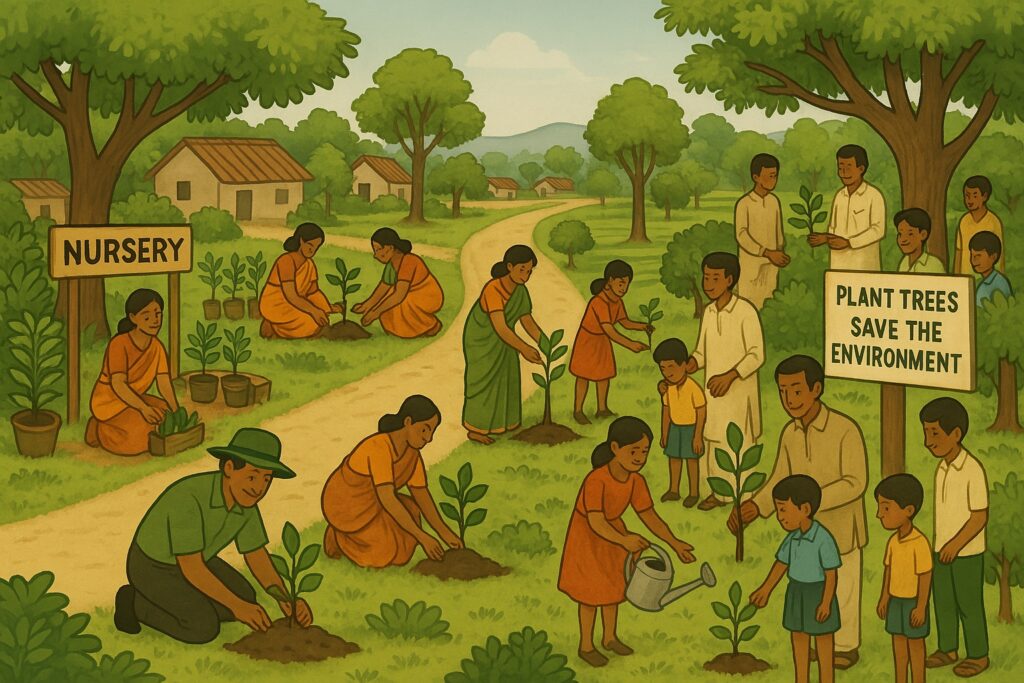Social Forestry is a concept that combines forestry and community development to promote sustainable forest management. It involves the active involvement of local communities in the management and conservation of forests, with the goal of improving both the health of the forest and the well-being of the people who depend on it.

Following are the key elements of social forestry and the benefits it offers:
- Community Participation: Social forestry emphasizes the importance of involving local communities in the management and decision-making processes related to forests. This allows communities to take ownership of their forests, understand the importance of their role in conservation, and be motivated to take action to protect their forest resources.
- Sustainable Forest Management: Social forestry promotes sustainable forest management practices that balance economic, social, and environmental considerations. This includes the use of agroforestry, the integration of trees into agricultural landscapes, and the promotion of non-timber forest products that can provide income for communities.
- Biodiversity Conservation: Social forestry recognizes the importance of biodiversity and the role of forests in conserving it. By involving communities in forest management, social forestry helps to protect wildlife habitats and maintain the diversity of plant and animal species in the forest.
- Livelihood Improvement: Social forestry provides opportunities for communities to improve their livelihoods through the development of non-timber forest products, agroforestry, and other forest-based enterprises. This can provide income for communities, reduce poverty, and improve the overall well-being of the people who depend on the forest.
- Carbon Sequestration: Social forestry can also contribute to the reduction of greenhouse gas emissions by promoting the growth of forests and increasing carbon sequestration. This helps to mitigate the impacts of climate change and protects the planet for future generations.
In conclusion, social forestry is a concept that promotes sustainable forest management and the active involvement of local communities in the management and conservation of forests. By balancing economic, social, and environmental considerations, social forestry offers numerous benefits, including improved livelihoods, biodiversity conservation, and carbon sequestration. Implementing social forestry programs can help ensure the health and sustainability of forests for future generations.
Read: Geography Notes